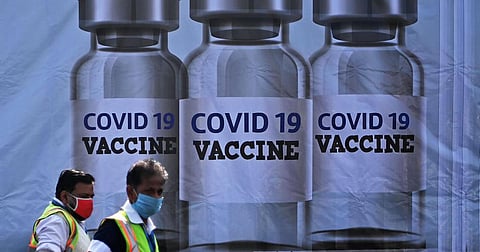

NEW DELHI: A panel of the National Technical Advisory Group on Immunisation (NTAGI) on Thursday recommended reducing the gap between the second and the booster dose of the Covid-19 vaccine from the current nine months to six months for those above 18 years of age, official sources said.
The NTAGI’s Standing Technical Sub-Committee (STSC) gave its recommendation to the union health ministry, which will take the final call, official sources said.
The decision came amidst a spike in Covid-19 cases in some states in the past 15 days. India’s Covid-19 vaccine coverage has exceeded 195.67 crores, till Thursday morning, as per union health ministry data.
At the moment, all those above 18 who have completed nine months after administering the second dose are eligible for the booster or precaution dose.
The union health ministry last month allowed those travelling abroad to get the jab before the stipulated nine-month waiting period as required by the guidelines of the destination country.
The members also discussed and reviewed the findings of a study by the Christian Medical College (CMC) in Vellore on the feasibility of allowing as a precaution dose a Covid vaccine different from the one used for primary vaccination.
Officials said the panel found a lack of uniformity in results upon mixing of jabs for booster shots and stated that no recommendation for it can be made as of now. The CMC study was on Covishield and Covaxin.
The panel, among other things, also discussed the threat of monkeypox, which has spread to 25 European countries. The World Health Organisation (WHO) has called for urgent action to control the fast-rising cases of monkeypox.
So far, no monkeypox case has been reported in India, with authorities issuing detailed guidelines for its prevention and control. Surveillance has been heightened at airports and ports, as Europe fast emerging as the epicentre of an outbreak, with more than 1,500 cases identified in 25 European countries.